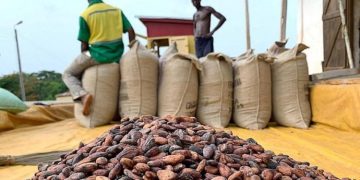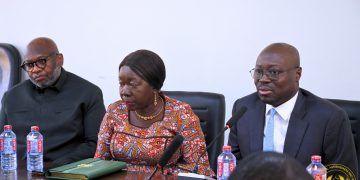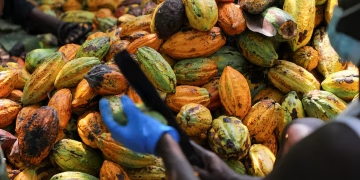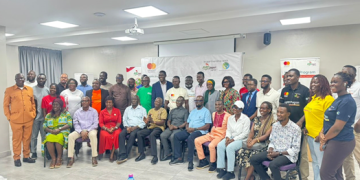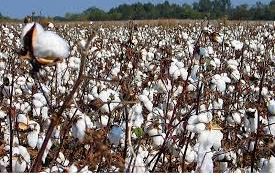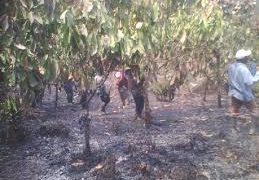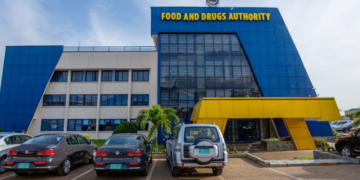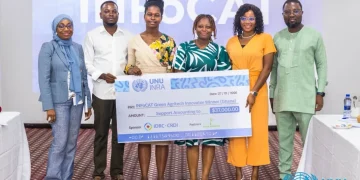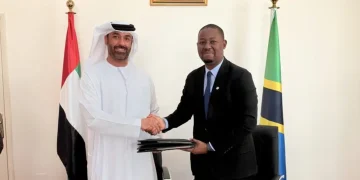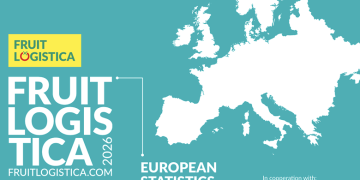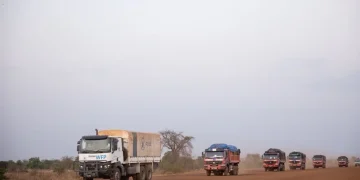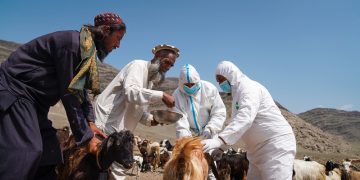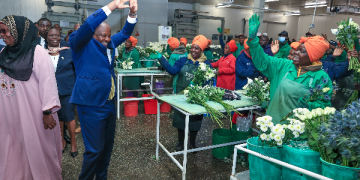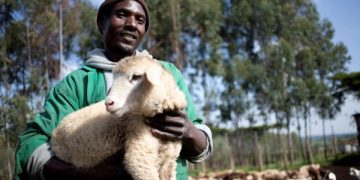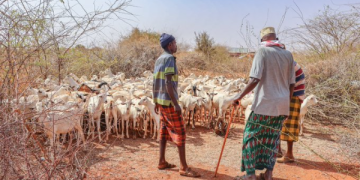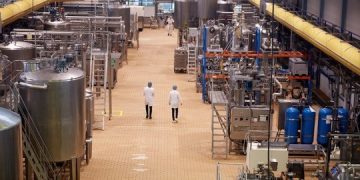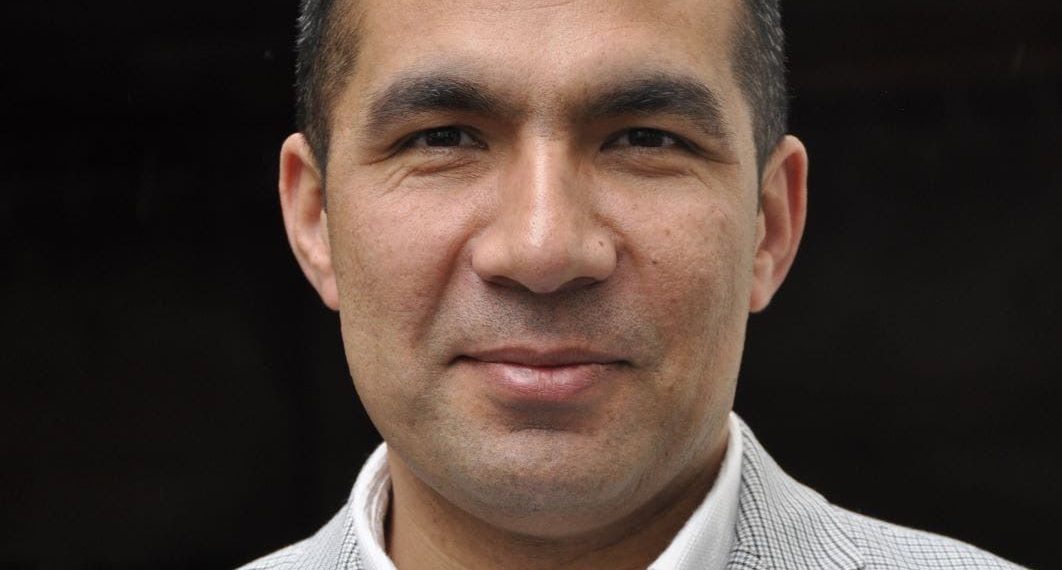By Ghulam Sakhi Bayramli | Health Diplomacy and Climate Research
Urban Agriculture
1. Introduction: Urban agriculture is a global emerging practice to improve food sovereignty, affect the socioeconomic and health situation of vulnerable groups, and impact the urban environments of the communities (Pradhan et al., 2023).
Globally, the number of people living in urban areas is gradually changing. In the 1990s, 45 percent of the world’s population was living in urban areas. Whereas, it’s expected that by the year 2025, this number will increase up to 65 percent (FAO, 2023).
Especially in settings and cities where vulnerable communities live, urban agriculture’s legalization and institutionalization can provide local control over food production and increase sustainability through organic farming and permaculture.
Moreover, conceptualized urban agriculture can encourage communities to be self-reliant which decreases their dependency on the global food chain and systems (Steenkamp et al., 2021). Furthermore, urban agriculture has direct and indirect impacts on human physical and mental health through providing fresh, nutritious fruits and vegetables which are the backbone of a healthy diet.
However, despite many direct benefits of urban agriculture on health, environment, and food sovereignty and security, challenges such as contamination of urban soils with toxins, land ownership barriers, limited spaces, coordination of different stakeholders, gender inequalities and economic impediments to the setting up of urban agriculture are core obstacles (Leitgeb et al., 2015).
To engage with this rapidly growing urban farming sector, adequate policies, appropriate institutionalization, awareness, and education are key factors. In this manner, community gardening and public urban agriculture educational programs allow community members to be physically active, and gain awareness in their backyard gardens or bigger agricultural spaces throughout their communities (Opitz et al., 2015).
1.1. Objective and Hypothesis: Due to the potential impact of institutionalization and legalization of urban agriculture on increasing food sovereignty, health, and sustainability through providing land, resources, and knowhow, and even though it is a complex and multidimensional theme, urban appropriate policies and government programs can affect the socioeconomic and environmental aspects of urban agriculture.
The following framework (Figure 1), developed by members of this working group, exemplifies the complexity of urban agriculture as well as its benefits, risks to the environment, and challenges to the socioeconomic fragments.
Figure 1: Urban Agriculture General Framework in 3 Main Aspects

- Conceptual Framework: As can be seen in Figure 1, this working group will mainly focus on three main aspects of urban agriculture:
- Policy and Governance
- Socioeconomic Aspects
- Environmental Aspects
The environmental part of urban agriculture deals with more technical and natural resources like soil, water, and air. This part of UA aims to reach significant goals like food security and sustainable cities to achieve SDG2 and SDG11.
The socioeconomic aspect, especially in low and middle-income countries, mainly focuses on generating resources to stabilize the overall socioeconomic situation. On the other hand, due to rapidly growing urbanization, high-income settings are more interested in green gentrification. This can decrease the potential of reaching equal opportunities and the chances of reaching SDGs 1, 3, 4, and 10.
Policy and governance are crucial in the case of providing and passing locally adapted, standardized, and institutionalized legal frameworks for sustainable development goals SDGs: 1,2,3, and11). To have environment-friendly, adequate, and standardized government policies, reaching sustainable development goal 16 (SDG 16), especially in urban areas and low and middle-income settings is essential.

2.1. Individual Framework (Figure 2): Firstly, this paper focuses mostly on the governance and policy section of this framework and the relationship between socioeconomic aspects, policy creation, and legalization of urban agriculture, health, and sustainable environmentally friendly urban farming.
Second, these variables are going to be exemplified by the case studies from Rosario City in Argentina and Cuba, in North America. The topic is going to be linked with the Sustainable Development Goals (SDGs) of the United Nations and is going to be discussed both critically and supportively to understand all dimensions, benefits, risks, and potential challenges of Urban agriculture in these two settings. Lastly, after the conclusion part, this assignment provides recommendations (both general and individual) for a better institutionalization of urban farming, possible factors hazards, challenges, and possible ways forward.
The formation, legalization, creation of adequate policies, and institutionalization of urban agriculture in any setting are important for addressing a wide range of urban challenges, including the security and safety of food, sustainability of environment-friendly farming, sustainable development, decreasing inequalities in vulnerable settings, and social participation of the most vulnerable groups (Bannor et al., 2021).
Institutionalization and legalization of urban agriculture to increase food sovereignty, health, and sustainability through providing land, resources, and know-how seem to be possible in the following two case studies but face some key challenges.
Figure 3: Urban Agriculture Impacts
| Number | Urban A | agriculture |
| Positive Impact On | Risks and Challenges | |
| 1 | Food Sovereignty | Space Limitation |
| 2 | Health | Toxins to urban soil |
| 3 | Environment | Luck of Education |
| 4 | Community | Economic Barriers |
| 5 | Poverty Reduction | Equity and Equalities |
Modified form (Nchanji, 2017), (Steenkamp et al., 2021) and other Literature readings.
Figure 4, describes the above-expounded key aspects and challenges of Institutionalization. From the various challenges, this paper will focus on coordination and stakeholders’ participation, since it is one of the most challenging aspects when it comes to legalization processes. From the key aspects, policy integration and educational & social adaptation of UA will be discussed in the following case studies.


3.1 Policy Integration for Sustainable Food Sovereignty in Rosario, Argentina
In a globalized world, with the global demand for food, reaching absolute food sovereignty is almost impossible in any setting. However, some countries in the world have been moving in the right direction and achieving a large portion of their fresh food and vegetables from urban farming.
The city of Rosario in Argentina is one of them. Rosario is a city located on the Panama River with more than one million inhabitants (Britannica, 2023). Its strategic position in the heart of the productive agricultural area is home to the very important passageway to urbanization and trade. Initially, began after the Argentinian economic crisis of 2001, Rosario’s peri-urban and urban agricultural program has been a reaction to the increasing flooding and heatwave events (Hammelman et al., 2021).
After the 2001 catastrophic crisis which endangered the country’s food security, the municipality of Rosario started to find a sustainable and affordable solution for the people of Rosario City.
The local government, in cooperation with local non-governmental organizations and universities, started multiple joint researches to find suitable lands for urban farming. The aim was to use those lands and produce fresh vegetables and fruits for the local communities (Dubbeling et al., 2009b). At the end of three years, the researchers found that 36 percent of the lands owned by the municipality of Rosario were appropriate for urban farming (A. Massen, et al., 2021).
Rosario municipality, especially after the 2017 floods happened, included local communities, farmers, NGOs, land owners, United Nations bodies, and research organizations to create different risk maps. As a result, and after months of discussions, an inclusive urban farming policy suitable for the city of Rosario and local demands, the “National Pro Huerta Project” was produced (Hammelman et al., 2021b).
The policy was then implemented step by step and the outcomes were extraordinary. By 2017, 75 hectares of agroecological spaces, and 800 hectares of spaces for peri-urban areas were producing an annual fresh fruit and vegetables of 2500 tons, helping to increase the share of locally produced vegetables up to 95 percent in the market (Dubbeling et al., 2009b).
In addition to this, 2400 families started their urban farming businesses, and at least seven new permanent market spaces were created helping new entrepreneurs to do business and be active members of financial circulation (A. Massen, et al., 2021).
Nowadays, Rosario is experiencing the outcome of those rational, yet very pertinent policy institutionalization from the 2000s and is among the successful stories when it comes to Urban Farming. In general, the local societies enjoy fresh and healthy vegetables and fruits serving them a portion of food sovereignty, affordable healthy diets, and sustainable development through financial activities related to local urban farming (FAO, 2023). The risks and challenges of this section will be discussed in the third part together with Cuba’s Urban farming challenges.
3.2 Educational and Social Integration of Urban Agriculture in Cuba
After the collapse of the Soviet Union in 1991 (Sakwa, 2005), Cuba was cut off from the Western world and faced a shortage of food imports, fertilizers, and even basic food supplementary products (Leitgeb et al., 2015). This situation took the necessity for food and nutritional products to its highest possible level. Shortage and a huge demand for food opened up the discussion on “Urban Farming” and possible ways of integrating it into the social and educational system (Viljoen & Bohn, 2012).
| Figure 5: Educational and Social integration of urban agriculture in Cuba |
As can be seen in Figure 5, the educational and social  integration of urban agriculture in Cuba has six major aspects. Which all are essential and equally important.
integration of urban agriculture in Cuba has six major aspects. Which all are essential and equally important.
However, due to page limitations for this assignment, this paper will mainly focus on government support and the integration of urban agriculture policies into the educational system of Cuba. As briefly mentioned above, after the era that Cuba left without access to food and food products, the government started the initiative of urban farming among vulnerable communities as a response to this hazard.
Through its related bodies, the government played a vital role in introducing urban agriculture to society and providing them with resources, training, land, and even financial support to engage with urban farming (Ergas, 2013). Just after this decision to make urban agriculture a priority, urban farming was introduced to the school curriculums, practical training was
provided to the local communities, research projects were run with universities, and educational support programs were organized for academia and researchers (Koont, 2009). For instance, citizens and university students in Havana had the chance to participate in the government-funded urban farming training programs run by local NGOs.
This knowledge sharing was then repeated on a bimonthly basis (FAO, 2023). As a result, by the year 2006, 50 to 60 percent of fresh vegetables and fruits were coming from local urban farms, the society had more awareness, sustainable and environment-friendly urban gardens were designed, research funds were provided by the authorities, and non-governmental national organizations were trained to promote sustainable agriculture techniques.
In addition to all these, and most importantly, 97,000 hectares of land in Havana only were dedicated to urban farming which especially reduced reliance on imported processed foods (Premat, 2013). Apart from these, Cuba was recognized as a model and successful country by international organizations like the United Nations Food and Agriculture Organization (FAO), which attracted not just regional but also international attention (FAO, 2023). Nonetheless, as with every rapidly growing phenomenon, introducing urban agriculture in a low-income setting like Cuba, needed a wider range of time and resources to be implemented smoothly and with minimum risk of gentrification and damage to the environment.
It has been continuously criticized by different stakeholders that decisions and the major parts of policy frameworks for the institutionalization of urban agriculture in Cuba, especially in Havana city, were a reaction to the United States embargo after the collapse of the Soviet Union rather than a planned and long-term government strategy. Consequently, its sustainability is debatable until these days (Mead et al., 2024b). This is going to be discussed in the challenges part as well.
3.2.1. Challenges of Institutionalizing Urban Agriculture: There are some key challenges like land scarcity and competing urban priorities, funding and allocating adequate financial resources, no visionary planning, and climate change, especially organic and inorganic substances use rate among farmers, and its negative effects (widely discussed in the environmental aspect part by another member of this working group) considering urban agriculture. All these challenges are crucial; however, the coordination of different stakeholders is leading to the top of all these contradictions.
3.2.1.1.: Coordination and Stakeholder Participation: Coordination on the process of creation of any policy in the bureaucratic government systems is not an easy task. Both in the cases of Rosario in Argentina regarding policy integration for sustainable food sovereignty and Cuba for Educational and Social Integration of Urban Agriculture, coordination was/is a key challenge.
Because, in Argentina for example, taking into account its economic and social instability and social disparities, passing a legal framework needs extreme preparations, allocation of resources, transferring know-how, training, and the joint interest of different stakeholders.
When it comes to the integration and institutionalization of urban agriculture policies into local settings, Argentina, despite its successful long-term stories, faces two main types of coordination challenges. First, intergovernmental, and second, public-private coordination (Duží et al., 2017).
The first was happening because of the different interest groups even inside the government body. For instance, the Ministry of Finance, health, and Environment and the Ministry of Agriculture have so many different priorities and projects.
While one governmental body considers the economic prosperity and well-being of the society, the other one has financial concerns and mostly represents another political party’s interests. As a result, resource allocation due to different interest stakeholders differs especially among the most vulnerable communities.
These different and new investment strategies after resource allocation for establishing new areas, can affect communities in urban places and gentrification plus income inequalities occur in parallel (Sax et al., 2022). (This last part and the socioeconomic aspect of urban agriculture are discussed widely in the second part by another working group member).
However, this so-called “conflict of interest” issue is less visible in the Cuban case since the government’s primary goal was/is providing education and transferring know-how regarding urban agriculture and farming to the population (Carolan, 2019). Despite that, still, the coordination challenge among different stakeholders is there and remains to be one of the biggest ones when it comes to the Educational and Social Integration of Urban Agriculture in Cuba.
In short, as an Island nation vulnerable to the negative effects of climate change, Cuba was/is confronting coordination challenges regarding urban agriculture integration into its educational and social system. Furthermore, as an effect of global warming and climate change, hurricanes, rising sea levels, and droughts are often seen in Cuba. That’s why, the security of urban agriculture and ensuring urban farming resilience is seen as vital in Cuba (Koont, 2011).
This ensuring resilience to urban agriculture needs a wide range of coordination between different sector stakeholders and resource allocation, as well as knowledge sharing and know-how transfer. To integrate all these legal frameworks into the social and educational contexts, considering different stakeholders’ involvement and willingness to engage in the process, someone needs limitless time and resources. And Cuba had/has none of them.
Because, due to the general socioeconomic situation and the vulnerabilities of its population, it does not have adequate resources for urban agriculture at the current time. Nonetheless, the time is also working against Cuba since climate change is threatening not just this Island but all parts of the world (Viljoen & Bohn, 2012b).
In general, as can be seen in this stakeholder analysis chart below, figure 6, the different stakeholders have various interests-influence, and that makes the implementation, institutionalization, and integration of any legal policy convoluted in both case studies, the City of Rosario in Argentina and Cuba in North America.
Figure 6, stakeholders’ analysis. This chart is modified from (Viljoen & Bohn, 2012b), (Koont, 2011), and other literature readings.

All in all, even though both the city of Rosario in Argentina and Cuba have been role modules for the institutionalization of urban agriculture policies to its social and educational systems, the coordination of different stakeholders, before, during, and after the process is yet to be faultless.
Conclusion: Urban agriculture is relatively new to most parts of the world. In the cases of Rosario in Argentina and Cuba in North America, institutionalization and legalization of urban agriculture to increase food sovereignty, health, and sustainability through providing land, resources, and know-how appeared as a reaction to a socioeconomic and political situation.
However, both cities and countries managed to adopt legal frameworks gradually despite some key contradictions. In Rosario, for example, the implementation of urban agricultural policies slowed down due to different stakeholder’s various interests.
These conflicts of interest were not just from the outside, but also it was ostensible within the government’s different bodies as well. Nonetheless, political instability, socioeconomic and impacts of global change affected the urban farming status accordingly. In Cuba, on the other hand, the main key accelerator to the rapidly increasing urban agriculture was economic and political conditions.
The 1990s embargo and limitation to adequate food in many ways forced not just the government bodies to react, but also compelled other stakeholders to focus on policy integration and institutionalization regarding urban agriculture. In sum, throughout this research, it has been found and critically discussed that institutionalization and legalization of urban agriculture, despite some major challenges, has a relatively positive impact on increasing food sovereignty, health, and sustainability through providing land, resources, and know-how, especially at the low and middle-income settings like the city of Rosario and Cuba.
However, some cases studied by the other two members of this working group show that urban agriculture creates gentrification (which leads to creating inequalities) and organic-inorganic substance use (which leads to creating health risks). Nevertheless, the possible solution and the way forward, in both of the case studies, are the unarguable necessity for further training, better coordination mechanisms for all stakeholders, and allocation of adequate resources for research, education, and technology.
- Education, training, and raising awareness: Urban agriculture is a relatively new phenomenon and for this reason, it is important to raise awareness and allocate adequate resources for education, training, and knowledge sharing.
- Standard and comprehensive (UA) Policies: To make the legal frameworks resilient and sustainable, standardized and comprehensive urban agriculture policies needed to be introduced.
- Allocation of adequate resources: All stakeholders need to allocate adequate resources for the sustainability of urban agriculture. These resources need to be especially concentrated on the most vulnerable groups, women and children.
- Legalization of harmful substance use and harmful plant cultivation: To avoid misuse or abuse of urban agriculture in communities, legal frameworks adapted to the local systems need to be institutionalized.
- Institutional engagement for (UA) monitoring: Each stakeholder, regardless of their interests, needs to engage as an organization rather than an individual. This way, the sustainability of urban agricultural activities could be guaranteed.
- Biotechnology adaptation: All stakeholders, including governments, need to realize the changes that are coming with globalization and that’s why adopt new technologies to urban agricultural settings.
- Stakeholders’ coordination: One of the most important parts of urban agriculture is stakeholder coordination. Since urban agriculture is a multi-dimensional and multifactor area, all stakeholders need to work in coordination and systematization with each other. Taking into account that a variety of stakeholders could have different interests, it’s a vital task of governments and nonpartisan bodies to take initiative and let the tasks done by different stakeholders smoothly.
Among other essential actions to be taken effective immediately, the allocation of more resources for “knowledge sharing” and “urban agriculture training projects” are key areas to be considered as urgent actions in both countries. Because, education and training can make the transition to a sustainable development setting easier and pave the way for more technology-adapted, environment-friendly, and health-oriented urban agriculture practices.
In addition to that, the allocation of adequate resources and funds (both national and international) to import know-how from abroad and use the experience of other successful examples from different low-income settings, for instance, Accra in Ghana, is crucial. Given that fact, if the communities are well-trained and well-informed, the sustainability of urban agriculture will be foreseeable in the coming decades. These settings can then increase food security and sovereignty, reduce inequalities, ensure sustainability, promote well-being, and protect the environment.
- Pradhan, P., Callaghan, M., Hu, Y., Dahal, K., Hunecke, C., Reusswig, F., Lotze-Campen, H., & Kropp, J. P. (2023). A systematic review highlights that urban agriculture has multiple benefits besides food. Global Food Security, 38, 100700. https://doi.org/10.1016/j.gfs.2023.100700
- Merino, M. V., Gajjar, S. P., Subedi, A., Polgar, A., & Van Den Hoof, C. (2021). Resilient governance regimes that support urban agriculture in Sub-Saharan cities: learning from local challenges. Frontiers in Sustainable Food
- Steenkamp, J., Cilliers, E. J., Cilliers, S. S., & Lategan, L. (2021). Food for Thought:
- Opitz, I., Berges, R., Piorr, A., & Krikser, T. (2015). Contributing to food security in urban areas: differences between urban agriculture and peri-urban agriculture in the Global North. Agriculture and Human Values, 33(2), 341–358. https://doi.org/10.1007/s10460–0159610–2
- Leitgeb, F., Schneider, S., & Vogl, C. R. (2015). Increasing food sovereignty with urban agriculture in Cuba. Agriculture and Human Values, 33(2), 415–
- Miccoli, S., Finucci, F., & Murro, R. (2016). Feeding the cities through urban agriculture the community esteem value. Agriculture and Agricultural Science Procedia, 8, 128–
- Nchanji, E. (2017). Sustainable urban agriculture in Ghana: What governance system works? Sustainability, 9(11), 2090. https://doi.org/10.3390/su9112090
- Bannor, R.K., Sharma, M. and Oppong–Kyeremeh, H. (2021), “Extent of urban agriculture and food security: evidence from Ghana and India”, International Journal of Social Economics,
- Britannica, T. Editors of Encyclopedia (2023, December 11). Rosario. Encyclopedia
- Hammelman, C., Shoffner, E., Cruzat, M., & Lee, S. (2021). Assembling agroecological socio-natures: a political ecology analysis of urban and peri-urban agriculture in Rosario, Argentina. Agriculture and Human Values, 39(1), 371–
- The Move to the City, https://www.fao.org/4/x0262e/x0262e22.htm (last reached 30th Sept. 2024).
- https://data.worldbank.org/topic/urban–development (last reached 30th Sept. 2024).
- Taubenböck, H., Esch, T., Felbier, A., Wiesner, M., Roth, A., & Dech, S. (2012). Monitoring urbanization in mega cities from space. Remote Sensing of Environment, 117, 162–
- Dubbeling, M., Bracalenti, L., & Lagorio, L. (2009b). Participatory Design of Public Spaces for
- https://www.wri.org/insights/rosario–urban–farming–tackles–climate–change (last reached October 1st 2024).
- Sakwa, R. (2005). The rise and fall of the Soviet Union. In Routledge eBooks. https://doi.org/10.4324/9780203980750
- Viljoen, A., & Bohn, K. (2012). Scarcity and Abundance: Urban agriculture in Cuba and the
- Architectural Design, 82(4), 16–21. https://doi.org/10.1002/ad.1422
- Ergas, C. (2013). Cuban Urban Agriculture as a strategy for food Sovereignty. Monthly
- Koont, S. (2009). The urban agriculture of Havana. Monthly Review, 60(8),
- Premat, A. (2013). Sowing change: the making of Havana’s urban agriculture. Choice
- Duží, B., Frantál, B., & Rojo, M. S. (2017). The geography of urban agriculture: New trends and challenges. Moravian Geographical Reports, 25(3), 130–138. https://doi.org/10.1515/mgr2017–0012
- Carolan, M. (2019). “Urban farming is going high tech.” Journal of the American Planning
- Sax, D. L., Nesbitt, L., & Quinton, J. (2022). Improvement, not displacement: A framework for urban green gentrification research and practice. Environmental Science and Policy, 137,
- Koont, S. (2011). Sustainable urban agriculture in
- Viljoen, A., & Bohn, K. (2012b). Scarcity and Abundance: Urban agriculture in Cuba and the US. Architectural Design, 82(4), 16–21. https://doi.org/10.1002/ad.1422
- Mead, B. R., Duncombe, T., Gillespie, R., Pugh, N., & Hardman, C. A. (2024b). Does urban agriculture contribute to food security, and how might this be achieved? Proceedings of the Nutrition Society, 1–9. https://doi.org/10.1017/s0029665124002209
- The World Bank, https://www.worldbank.org/en/topic/urbandevelopment/overview (last reached 30. Sept. 2024).














